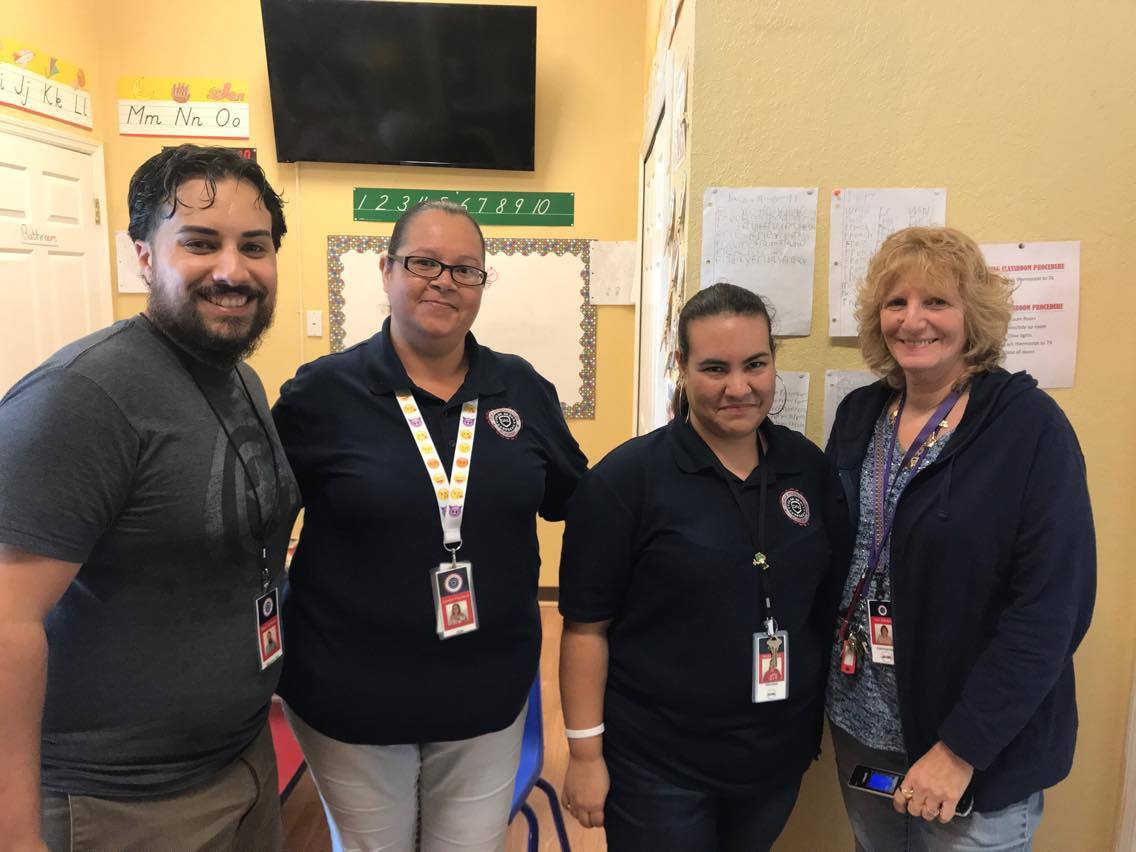
When Hurricane Maria hit Puerto Rico on Sept. 20, Joselyn Figueroa was beside herself.
A student aide at Ocala Preparatory Academy, a private school that serves 50 students in Marion County, Fla., Figueroa did not hear from her parents for five days.
She could only wait, listening to news reports, stunned that a historic Category 4, near-Category 5 hurricane wrought havoc on the island she called home for many years.
She described the phone call that she finally received, after days of waiting, as “beautiful.”
“I needed to hear their voice to tell me, they are OK,” she said.
Her mother and father were safe but shaken by the storm. They lost their home. They now struggle to find food, water and medicine. Figueroa’s mother had a kidney transplant and needs to get her monthly medication. They live in the small agricultural town of Yauco. It was founded in 1756 and dubbed “Coffee City.” It was once known as the global capital for the caffeinated crop. They don’t know how it will rebuild.
“It is so frustrating for me,” Figueroa said. “I hear my mom tell me, ‘Everything is destroyed around here.’”
She found support from the school where she works. It’s home to several members of Florida’s growing Puerto Rican diaspora. Its students and staff have witnessed the island’s mounting humanitarian crisis from afar. And now, they are looking for ways to help.
Figueroa left Yauco earlier this year, with her husband and two children. She wanted to start a new life in Ocala, and further her career in education.
She had corresponded with Karen Vega, co-founder of Ocala Preparatory Academy, for over a year. Both her children receive educational choice scholarships. One received a Gardiner Scholarship, an education savings account for students with special needs. The other received a Florida tax credit scholarship. Step Up For Students, which publishes this blog, helps administer both programs.
Ocala Preparatory is no ordinary school. Vega, along with another mom, founded it to create a personalized, college-prep learning opportunity for children with a wide range of needs and ability levels.
Once Figueroa arrived, Vega felt she’d be a strong candidate for a student aide position.
After the Hurricane, Figueroa said she cries a lot.
“I feel guilty sometimes I am here,” she said, with pain in her voice. “I am doing great. I just imagine they are having a rough time there [in Puerto Rico]. It is frustrating for me. I’ve got power and they’ve got nothing.”
She remembered Yauco as a small village with produce and paintings. Now that image is gone forever, replaced by destroyed bridges, flooded roads and dead crops.
“They need time to rebuild,” she said.
She also has nephews in Yauco. The whole family of six is recovering in her home. They were only able to withdraw $50 from the ATM for food rations and are surviving on rice and eggs. There is little water available.
“My dad can’t speak to me,” she said, choking up. “He was crying. He told me that, thank God I am here. I feel bad.”
Figueroa is not the only one at Ocala Preparatory affected by Hurricane Maria.
Lori Silloway, an administrator, has a sister and brother-in-law in Puerto Rico.
They have a home in Hollywood, in South Florida. Her sister, who is recovering from breast cancer, is trying to return for a medical checkup.
“They are out of food and water but other family members have food so they can go over there to eat,” Silloway said. “We are trying to send them supplies, but the post office is not open.”
Nicole Rivera, who teaches kindergarten through third-grade students at Ocala Preparatory, also has family in Puerto Rico.
Her cousin described flooding in the streets and five-hour gas lines. Trucks are unable to deliver much-needed supplies because of widespread flooding, so supplies sit at the ports.
“They haven’t prepared to go weeks without food,” she said of her family. “My heart wants to go and help, but I can’t leave my class. They are going to be stranded without a teacher.”
Downed trees block the roads into remote small towns, Rivera said, relaying reports from her family on the island. Students are out of school, and some don’t expect to return until January.
CBS Miami reported that Florida educators are preparing for a huge influx of Puerto Rican students.
“I can guarantee you that Orange County and Miami-Dade will be the two points of reception. This will be the new Ellis Island for Puerto Rico,” Miami-Dade County Public Schools Superintendent Alberto Carvalho told the TV station.
Vega thinks there will be a need for help beyond those two points of arrival — including her community, about an hour’s drive northwest of Orlando. She serves as the executive director of the school’s parent organization, Outreach Autism Services Network. The nonprofit provides support services to parents and students with autism.
She wants to help those in Puerto Rico.
“If any business or individual wants to sponsor a child from Puerto Rico to attend Ocala Preparatory, we are willing to work with our community to place children in local families’ homes,” she said.
Vega and students at the school have donated items to nearby Blessed Trinity Church to send to Puerto Rico.
“I just think it is important that they know we are going to continue collecting items for the victims of Hurricane Maria in Puerto Rico until there is no longer a need,” Vega said.


